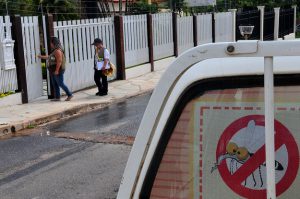
Brazil Is Doing Its Part in the Global Fight Against Zika
On Monday February 1, the World Health Organization (WHO) declared the Zika virus, transmitted by the Aedes aegypti mosquito, an international public health emergency. The announcement follows the declaration by Brazil of a national public health emergency. An outbreak of the Zika virus was detected last year in Brazil. The virus has since been found … Read more

Sexual Harassment in Brazil Starts at Age Nine. Here’s What One Group Is Doing About It.
Nine years old. That’s the average age that, according to Brazilian NGO Think Olga, Brazilian females are first subjected to sexual harassment. Think Olga uncovered the startling number as part of a Twitter campaign called #primeiroassedio (#firstharassment), which encourages women to use social media to recount their first experience of sexual assault or harassment. To … Read more

A Scenario Under Which Rousseff Gets Impeached in Brazil
In Brazil a few weeks ago, I asked a former official from Dilma Rousseff’s government whether his old boss would be impeached. “Forgive me for being politically incorrect,” he said, “but only if the poor take to the streets.” Ah, Brazil, where even in moments of high political drama, the class divide reigns supreme. But … Read more

Brazil, Heaven and Hell in the Same Day
Last Thursday began beautifully, deep in the Brazilian Amazon, with a walk through a lush city park. I strolled among bougainvillea and castanha do Pará and samaúma trees. I saw a large red and blue macaw ambling down the sidewalk, and had just sat down to take a selfie with him when the little jerk … Read more
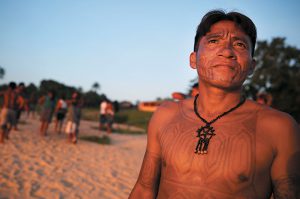
A Batalha Pela Amazônia
Nosso barco deslizava calmamente sobre o rio Tapajós, quando, de forma inesperada, a monotonia hipnótica da Amazônia foi quebrada por pequenos corpos saltando na água. Um punhado de crianças da tribo local Munduruku havia se pendurado em árvores ao longo da margem do rio. Ao nos ver chegando, elas pularam na água escura, subiram a … Read more

What an Economic Recovery in Brazil Might Look Like
Now might seem like an odd time to look for signs of hope in Brazil. Dilma Rousseff has an approval rating of just 10 percent, she faces possible impeachment proceedings, scandal has frozen activity at the country’s biggest companies, inflation runs around 10 percent and the economy is expected to shrink 3 percent this year. … Read more

What’s Happening on Rio’s Beaches?
A civil society group is resisting government efforts to restrict access to some Rio de Janeiro beaches, announcing a plan for thousands of the city’s favela residents to travel en masse to a popular Ipanema beach on October 4. Papo Reto Coletivo, an independent media group based in Rio’s expansive Complexo do Alemão favela, is coordinating the event to … Read more

Gangsta’s Paradise: How Brazil’s Criminals (and Police) Use Social Media
Rio de Janeiro´s most wanted drug trafficker, Playboy, died in a hail of police gunfire at his girlfriend´s apartment this month. Photographs of his bullet-riddled body began circulating on the Internet within minutes of his demise. So did an audio recording suggesting that he “left the scene alive, but arrived to the hospital dead.” His assassination is yet another pixel … Read more

Janio Is Coming: The Return of the Old, Unstable Brazil
Over the last two decades, it seemed like a new Brazil had taken root. A stable, democratic Brazil, one where presidents finished their terms, a vibrant economy lifted all boats, and money more or less retained its value. But now – meu Deus. With every cry for impeachment, with every revelation of the rot at … Read more

The Incredible Unknown Bond between Joe Biden and Brazil’s Dilma Rousseff
How the vice president’s style—and a shared connection from the past—helped win over the Brazilian president.
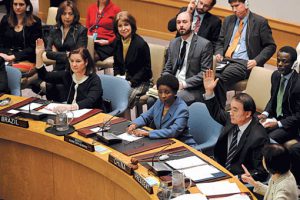
International Cooperation or Gridlock?
A shift of the global balance of power is under way. Emerging countries are increasingly playing significant roles on global issues, such as the global economy, trade, and investment, as well as in diplomacy and multilateral decision making. In a few years, we will witness a historically rare phenomenon, when a new country will become … Read more
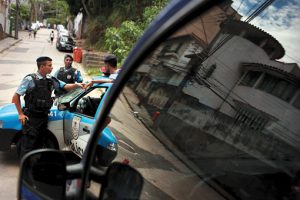
Safe Streets, Safe Cities
Discussions of sustainable cities tend to focus on environmental goals such as developing eco-friendly architecture, recycling, and improving the resiliency of urban infrastructure systems. But public or citizen security is an equally important aspect of building a sustainable city. Often, it is the issue that tops the list of citizens’ concerns—and with good reason. Violent … Read more
City of God, City of Barriers
Some see Rio’s favelas as crime-ridden danger zones. Cavi Borges, a local filmmaker, sees them as dynamic film sets. The movie producer and director hops on the back of a motorcycle taxi at the base of the Vidigal favela—a shantytown snaking up Morro Dois Irmãos in Rio de Janeiro—and zips through a series of alleyways … Read more
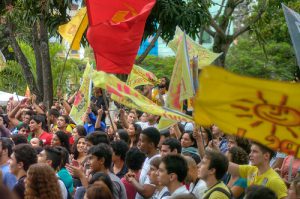
Brazil’s Municipal Elections Yield Mixed Results for the Ruling PT
As part of its quadrennial electoral process, Brazil held simultaneous local elections on Sunday in over 5,560 municipalities. In all, roughly 140 million votes were cast—normal turnout, since voting is mandatory in Brazil. Voters chose from among nearly 480,000 candidates to determine the mayors (prefeitos), deputy mayors (vice-prefeitos) and local councils (vereadores) across the country. … Read more

2016 Olympics Central to Rio de Janeiro’s Mayoral Race
When campaign season in Rio de Janeiro officially started on July 6, Rio’s incumbent mayor, Eduardo Paes, looked like a shoo-in. Touting the “Olympic City,” he has campaigned on the idea that Rio’s upcoming mega events—including the 2014 World Cup and 2016 Summer Olympics—will contribute to a boom for a city that is thriving after … Read more


